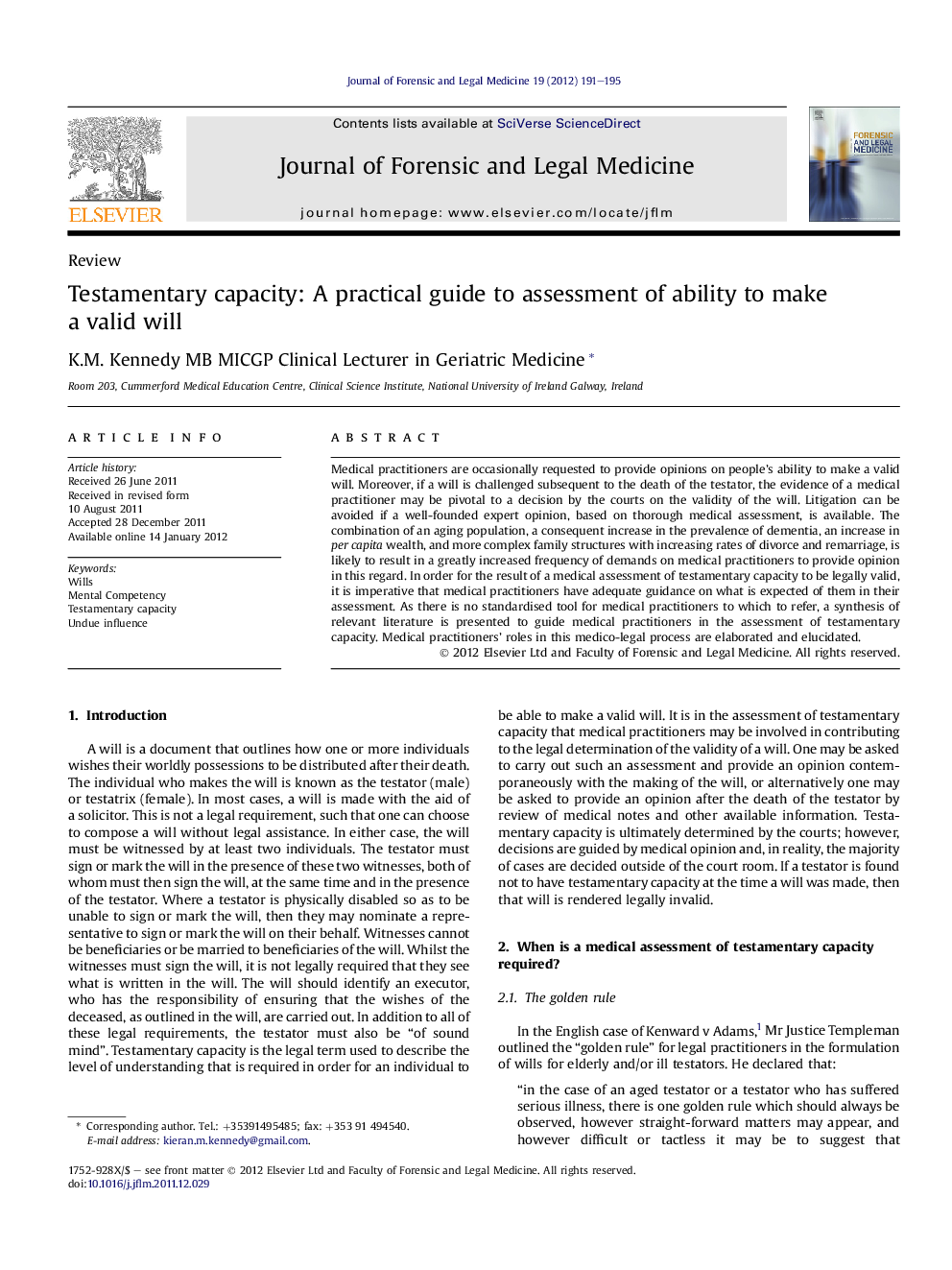| Article ID | Journal | Published Year | Pages | File Type |
|---|---|---|---|---|
| 102202 | Journal of Forensic and Legal Medicine | 2012 | 5 Pages |
Medical practitioners are occasionally requested to provide opinions on people’s ability to make a valid will. Moreover, if a will is challenged subsequent to the death of the testator, the evidence of a medical practitioner may be pivotal to a decision by the courts on the validity of the will. Litigation can be avoided if a well-founded expert opinion, based on thorough medical assessment, is available. The combination of an aging population, a consequent increase in the prevalence of dementia, an increase in per capita wealth, and more complex family structures with increasing rates of divorce and remarriage, is likely to result in a greatly increased frequency of demands on medical practitioners to provide opinion in this regard. In order for the result of a medical assessment of testamentary capacity to be legally valid, it is imperative that medical practitioners have adequate guidance on what is expected of them in their assessment. As there is no standardised tool for medical practitioners to which to refer, a synthesis of relevant literature is presented to guide medical practitioners in the assessment of testamentary capacity. Medical practitioners’ roles in this medico-legal process are elaborated and elucidated.
